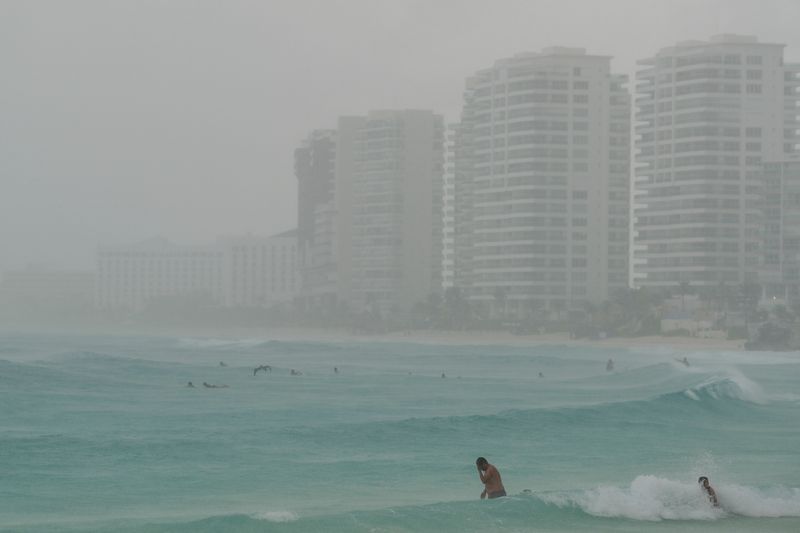By Dave Sherwood
HAVANA (Reuters) -Tropical Storm Helene is expected to unleash mudslides and flooding in Cuba before reaching major hurricane strength on Thursday as it hits Florida with life-threatening ocean surge, the U.S. National Weather Service said.
Helene was churning about 180 miles (277 km) south of the western tip of Cuba as it barreled northwest, with maximum sustained winds of 45 mph (72 kph), the Miami-based National Hurricane Center said in its latest advisory on Tuesday.
Forecasters predict Helene will strengthen quickly over the warm waters of the Gulf of Mexico to become a major hurricane, packing winds as high as 115 mph.
In the U.S., state and national authorities warned of damaging winds and surging walls of seawater driven inland, inundating low-lying coastal areas of Florida's panhandle and west coast as early as Wednesday.
Governor Ron DeSantis declared a state of emergency in most Florida counties. People in some regions already faced mandatory evacuation orders on Tuesday ahead of expected coastal flooding.
White House spokesperson Jeremy Edwards said President Joe Biden had been briefed on the storm and was in touch with local officials.
"Federal resources and personnel are prepositioned, including generators, food, and water, along with search and rescue and power restoration teams," Edwards said.
CUBA RAINS
Sheets of rain began lashing western Cuba on Tuesday morning, prompting authorities to shut down schools, close ports and recall fishing boats.
Farmers scrambled to secure thousands of tonnes of prized tobacco, the coveted raw material for fine Cuban cigars, ahead of the expected high winds.
A hurricane watch and tropical storm warnings were in effect across the western third of Cuba, while the capital Havana was expected to see heavy rain and more moderate winds.
Residents across much of Cuba - already saddled by economic crisis and facing severe shortages of fuel, food and medicine - battened down homes and farms ahead of the storm.
Cuban housewife Yoli Gigato, a resident of Mantua, on the far western tip of the island, said she and her children were bracing for the worst, sealing windows and sand-bagging her roof.
"Our experiences with hurricanes have been terrible," Gigato said, recalling the direct hit from Hurricane Ian two years prior. "We are praying that the damage is not so serious."
The storm's path also passes over the northeastern tip of Mexico's Yucatan Peninsula. In Cancun, fishermen pulled boats onto the sand and hotel workers removed sun beds under a darkening sky.
Climate scientists say annual hurricanes in the Caribbean and Gulf of Mexico region have grown more frequent and severe due to global warming.

The storm is expected to move north later in the week over parts of Georgia, Tennessee and Kentucky, bringing isolated flash and urban flooding, the weather service said.
U.S. oil producers have been evacuating staff from platforms in the Gulf of Mexico as the storm has approached.